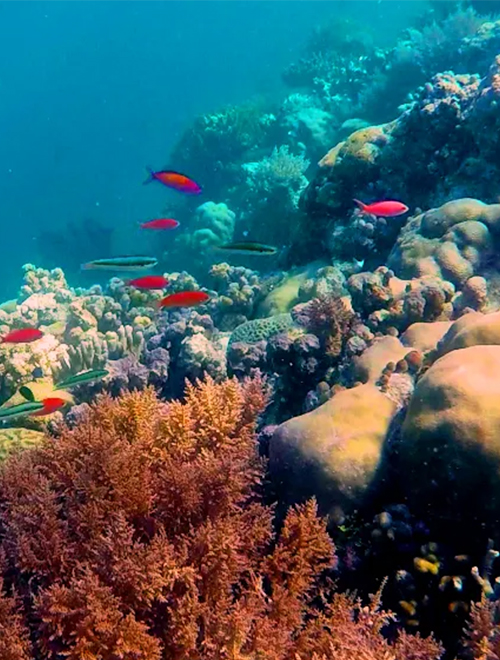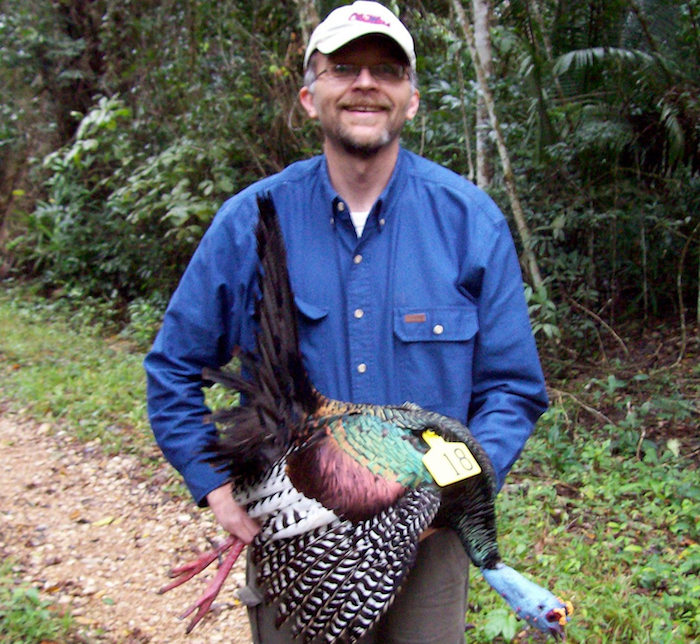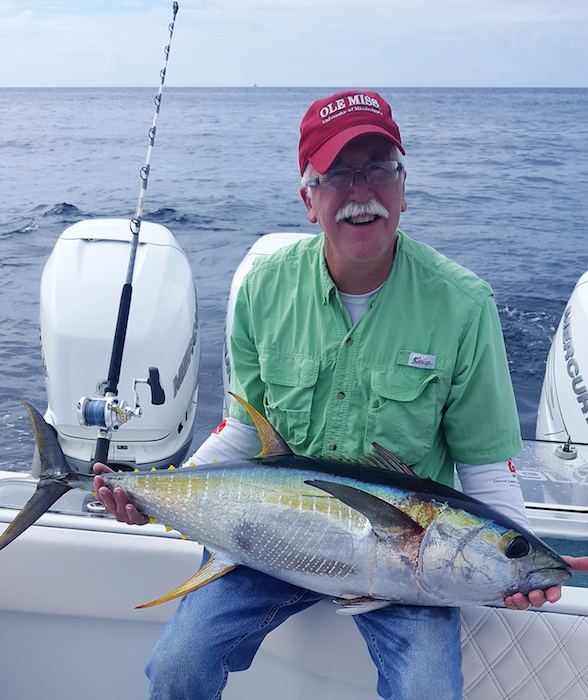Center for Biodiversity and Conservation Research
The Center for Biodiversity and Conservation Research coordinates efforts by the faculty and students at the University of Mississippi, and our professional affiliates at governmental agencies and non-governmental groups, to research, manage and conserve biodiversity.
Email:
biology@olemiss.eduOffice Location:
214 Shoemaker HallPhone:
662-915-7203
- Home
- Departmental Directory
- Liberal Arts
- Center for Biodiversity and Conservation Research

What is Biodiversity and Conservation Research?
Various academic disciplines use a scientific approach to describe biological diversity and to determine the ecological, evolutionary and environmental parameters associated with speciation and extinction. At the University of Mississippi these scientists span several departments, where they study the diversity of everything from fungi to sharks, using approaches that combine technologies for investigating levels of analysis that include a range from genes and physiology up to ecosystems. Scientific results are shared with the scientific community and environmental decision makers so that natural resources can be managed appropriately and effectively to meet ecological, economic and ethical expectations. The conservation of biodiversity, ecological services, and functional ecological landscapes is a shared goal of Center members and affiliates.
How Does the Center Work?
The Center for Biodiversity and Conservation Biology Research acts as a point of contact for non-governmental and governmental granting agencies, and as an information clearinghouse for communicating research and funding opportunities with suitable subsets of member faculty. Professional affiliates of the Center allow for collaboration between Center members and researchers at other universities and state, federal and private agencies involved in conservation research.
By connecting University of Mississippi students to the Center through the student affiliate program, we create opportunities for them to find research mentors, become familiar with issues and methodologies of biodiversity conservation, and enhance interactions among peers with common interests in conservation. Through shared teaching and student training and research efficiency enabled by coordinating activities through the CBCBR, our members become more competitive for grant funding. We also see the Center as being a catalyst that enables departments to attract new faculty, recruit additional doctoral students, offer scholarships for undergraduate and graduate students, to improve the development of STEM-focused workforce in our state, and to bring the research activities of the Center members and affiliates and the University of Mississippi at large to the attention of a wider scientific and lay audience.
Support Our Work
Help support Biology graduate students involved in biodiversity or conservation research.Meet Our Members
Richard Buchholz
- Professor of Biology and Director of the Center for Biodiversity and Conservation Research
John Brewer
- Professor of Biology
Rob DeVries
- Instructional Assistant Professor of Biology
James Cizdziel
- Chair and Professor of Chemistry and Biochemistry
Ryan Garrick
- Associate Professor of Biology
Deborah Gochfeld
- Principal Scientist in National Center for Natural Products Research, Research Professor of Environmental Toxicology in Biomolecular Sciences and Adjunct Professor of Biology
Bradley Goodwiller
- Instructional Assistant Professor of General Engineering
Sharon Hayes
- Instructor in Economics
Jason Hoeksema
- Professor of Biology, Associate Chair and Graduate Program Coordinator
Erik Hom
- Associate Professor of Biology
Colin Jackson
- Professor of Biology
Laura Johnson
- Professor of Psychology
Scott Knight
- Director of the UM Field Station
Christopher Leary
- Associate Professor of Biology
Lucile McCook
- Project Coordinator
Brice Noonan
- Associate Professor of Biology
Michel Ohmer
- Assistant Professor of Biology
Brian Platt
- Associate Professor of Geology & Geological Engineering
Marc Slattery
- Professor of Pharmacognosy, Environmental Toxicology in BioMolecular Sciences, Research Professor in the Research Institute of Pharmaceutical Sciences, Director of NIUST
Beckie Symula
- Instructional Professor of Biology and Faculty Fellow for STEM Learning
Beckie Symula
- Instructional Professor of Biology and Faculty Fellow for STEM Learning
Peter Zee
- Associate Professor of Biology
Meet the Directors
Dr. Richard Buchholz, Director

An animal behaviorist by training, Dr. Buchholz has studied avian reproductive behavior for several decades, while also working with his students to investigate biodiversity and the conservation of a variety of wildlife species, including frogs, salamanders, turtles, bats, tapirs, birds and ants. Because of abundant evidence that humans are causing a ‘sixth mass extinction’ he co-founded the CBCR in May 2018 as the Center’s Associate Director, becoming Director in 2022. He co-edited the first book on behavioral approaches to conservation, chaired the Conservation Committee of the Animal Behavior Society, was Associate Editor for The Condor: Ornithological Applications, and serves on the Scientific Advisory Committee of the Endangered Species Council. His research has been funded by the American Museum of Natural History, the US Fish and Wildlife Service, Entergy, the Department of Agriculture, the National Science Foundation, and the National Geographic Society, among others. He has directed to completion 11 Masters and Doctoral graduate students, and 13 undergraduate honors thesis students. He received his Bachelor of Science degree from the State University of New York at Binghamton, and his Masters’ and Doctoral degrees from the University of Florida. He is a Professor in the Department of Biology, at the University of Mississippi.
Dr. Glenn Parsons, Founding Director (retired)

In response to the marked decline in fish diversity he has observed over the past 40 years of his research career, Dr. Parsons co-founded the CBCR in May 2018. With over 100 scientific papers, reports, books, and popular articles on sharks and other fishes, and millions of dollars of grant funds, he is an acknowledged expert in shark and fish biology. His work has been recognized and received awards by the World Wildlife Fund, the Rolex Corporation, the Walton Foundation for Marine Research, the National Fish and Wildlife Foundation, the National Marine Fisheries Service, The U.S. Army Corps of Engineers, the Mississippi Department of Wildlife and Fisheries, two governors of the state of Mississippi, and testified as a shark expert before the U. S. Congress. He has directed to completion 18 Master’s and Doctoral graduate students, many of whom have become shark biologists. He received his undergraduate degree from the University of Alabama, Birmingham, Masters’ degree from the University of South Alabama, and the Doctoral degree from the University of South Florida, School of Marine Science. Dr. Parsons retired from the Department of Biology, at the University of Mississippi in December 2021.
Professional Affiliates
Shane M. Abeare - Marine Environmental Consultant, CSA Ocean Services
Expertise: Fisheries management and conservation; Natural resource management; Spatial planning and analyses
Susan B. Adams - Center for Bottomland Hardwoods Research, USDA Forest Service, Southern Research Station
Expertise: Crayfish & fish ecology; Crayfish taxonomy; Aquatic invasions
Zanethia C. Barnett - Research Fisheries Biologist, Aquatic Conservation and Ecology Team, USDA Forest Service
Expertise: Aquatic ecology; Community ecology; Population genetics; Astacology
Marge Holland - UM Center for Water and Wetland Resources, University of Mississippi
Expertise: Plant ecology; Wetland ecology; Plant diversity
Paul K. Lago - Department of Biology, University of Mississippi
Expertise: Entomological systematics
Matt Moore - National Sedimentation Laboratory, USDA Agricultural Research Service
Expertise: Constructed wetlands; Phytoremediation; Water quality
Rachel Nilfong - National Sedimentation Laboratory, USDA Agricultural Research Service
Expertise: Ecosystem ecology
Lindsey M. Witthaus - National Sedimentation Laboratory, USDA Agricultural Research Service
Expertise: Water quality; Limnology; Agroecosystem sustainability; Climate change
Student Affiliates
Undergraduate Affliliates
Meredith Goza - Biology Major
Spring 2021 -
Sarah Ferguson - Biology Major, Environmental Studies Minor
Spring 2021 -
Madelyn Abbott - Biology Major
Fall 2019 - Spring 2021
Graduate Affiliates
Lucia Anaya Morales - Ph.D. Biology
Joined Spring 2023
Boluwatife Olubusoye - Ph.D. Analytical Chemistry
Joined Spring 2023
Kendall Wontor - Ph.D. Analytical Chemistry
Joined Spring 2023
Maddie Jewess - M.S. Biology
Joined Spring 2023
Tyler Brock - Ph.D. Biology
Joined Fall 2022
Jakub Zegar - Ph.D. Biology
Joined Spring 2022
Ian Mounts - Ph.D. Biology
Joined Spring 2022
Thuy M. Nguyen - Ph.D. Biology
Joined Spring 2022
Kayleigh Mazariegos - Ph.D. Biology
Joined Spring 2022
Laney Hayward Nute - Ph.D. Biology
Joined Spring 2022
Patrick Allison, Jr. - Ph.D. Biology
Joined Spring 2022
Savannah Draud - Ph.D. Biology
Joined Spring 2020
Akacia Halliday - Ph.D. Biology
Joined Spring 2020
Jordan Heiman - Ph.D. Biology
Joined Spring 2020
Jessica Stamn - Ph.D. Biology
Joined Fall 2020
